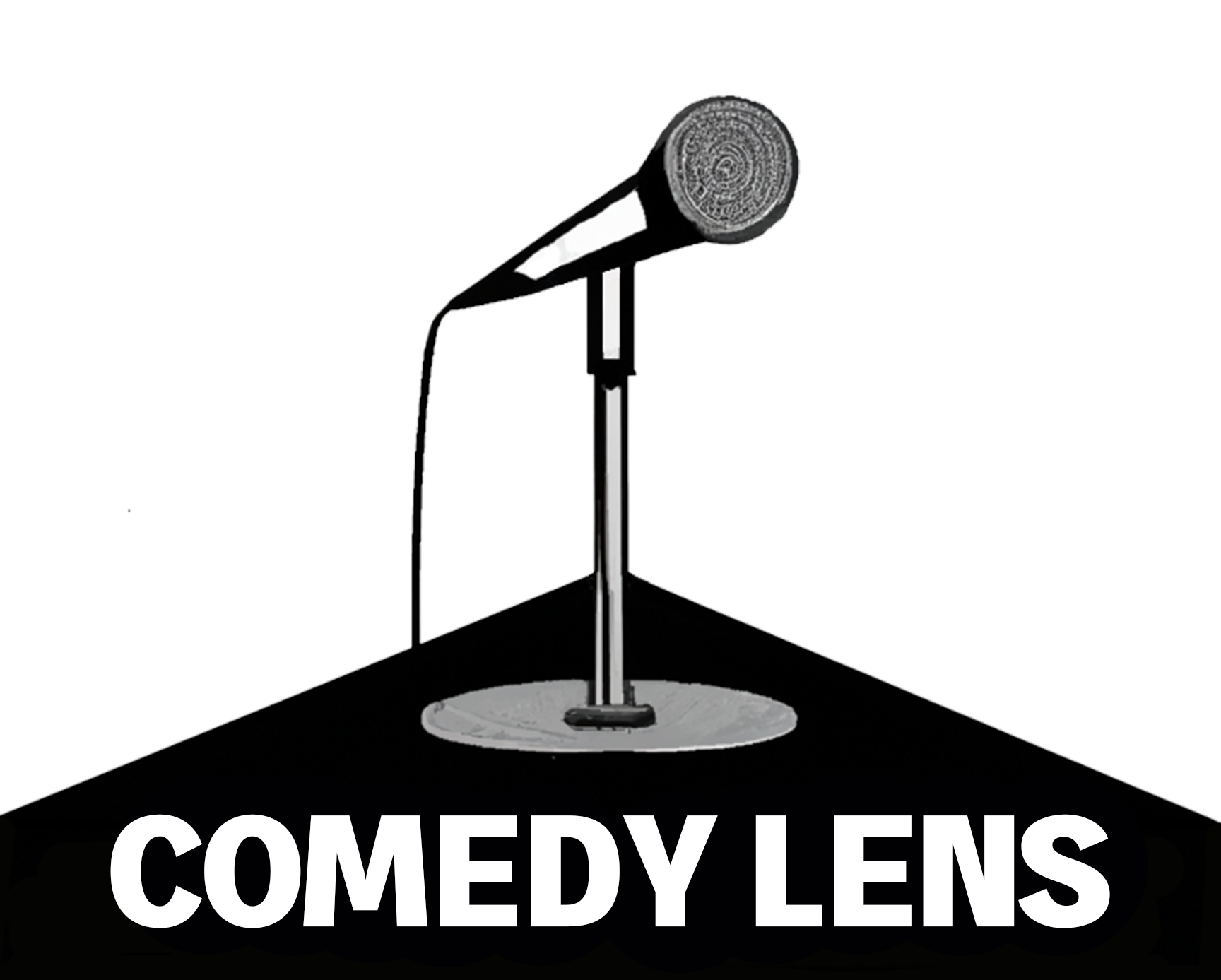April 28, 2023

Entering the world of stand-up comedy can be an exciting and rewarding endeavor for those with a passion for humor and a desire to entertain. However, success in this field requires a combination of hard work, perseverance, and, of course, a knack for making people laugh. Nevertheless, becoming a stand-up comedian is an achievable goal for those who are willing to dedicate themselves to honing their craft and taking advantage of the opportunities available to them.
Aspiring comedians typically begin by studying the work of successful comedians such as Chris Rock, Sarah Silverman, Jerry Seinfeld, and Wanda Sykes in order to learn from their experiences and develop their own unique comedic voice. In addition to observational learning, taking a stand-up comedy class can provide essential guidance and an understanding of key techniques. Furthermore, carrying a notebook to jot down funny ideas throughout the day is a valuable practice for comedians of all levels.
To begin their journey in stand-up comedy, individuals should first focus on creating a cohesive five-minute set consisting of 2 or 3 high-quality bits with multiple jokes per bit. Once they have a solid routine, they can then seek out open mic nights to practice their material and gain performance experience. This will ultimately open the door to networking opportunities and potential comedy club gigs, paving the way for a successful career in stand-up comedy.
Understanding Stand-Up Comedy
Stand-up comedy is an art form that combines humor, storytelling, and entertainment. To become a successful stand-up comedian, it’s important to understand the various components of this art form, including comedy styles, joke structure, and stage persona.
Comedy Styles
There are several comedic styles that stand-up comedians use to engage their audiences. Some common styles include
- Observational Comedy: In this style, the comedian makes humorous observations about everyday life and the world around them. Examples of observational comedians include Jerry Seinfeld and Ellen DeGeneres.
- Anecdotal Comedy: Here, comedians tell personal stories or experiences, often with a humorous twist. David Sedaris and Mike Birbiglia are examples of anecdotal comics.
- One-Liner: Comedians who use this style specialize in delivering jokes through a series of short, punchy lines that elicit laughter. Demetri Martin and Mitch Hedberg are known for their one-liner comedy.
- Improvisational Comedy: This style involves unscripted performances in which comedians create jokes and scenarios on the fly, often taking cues from the audience. Wayne Brady and Colin Mochrie are accomplished improv comedians.
Joke Structure
A well-structured joke is crucial for stand-up comedy, as it determines the success of a bit. The basic joke structure consists of a setup and a punchline:
- Setup: The first part of the joke that introduces the situation or premise, creating anticipation.
- Punchline: The surprising and humorous twist that resolves the setup, triggering laughter.
Although this is the most common structure, variations and combinations can be used to create a unique comedic style. Timing, pacing, and delivery all play a significant role in the effectiveness of a joke.
Stage Persona
Developing a stage persona is an essential aspect of stand-up comedy. The stage persona is the character a comedian portrays on stage, which can be an exaggerated version of themselves or a completely different character. Successful comedians often have a distinct stage persona that resonates with their audience and sets them apart from other performers.
Finding the right stage persona can take time and experimentation. Studying successful comedians and observing their personas can help aspiring stand-up comedians understand how to develop their unique voice and identity on stage.
Developing Your Material
Becoming a successful stand-up comedian requires not only stage presence, but also well-developed material. In this section, we’ll discuss how to find inspiration, write jokes, and create a routine that will keep your audience entertained and engaged.
Finding Inspiration
One of the most important aspects of developing your material is identifying the topics and issues that interest you and your potential audience. Drawing inspiration from your own life experiences, current events, or popular culture can help you create relatable and engaging content. Keep a notebook handy to jot down ideas, funny observations, or any premises that come to mind.
Also, pay attention to other comedians and their styles. While it’s important not to plagiarize, you can learn from their techniques and incorporate them into your own unique storytelling style.
Writing Jokes
Jokes are the building blocks of your comedy routine. A successful joke typically consists of a premise, a setup, and a punchline. The premise lays the foundation and introduces the concept; the setup creates an expectation in the audience’s mind; and the punchline subverts that expectation and generates laughter. Experiment with different joke formats, such as one-liners or longer narratives.
Brainstorming is essential to writing jokes. Start by jotting down as many ideas as you can, then refine your favorites. Focus on creating clear and concise set-ups, while making sure the punchline provides a strong, unexpected twist. Don’t be afraid to rewrite and test your jokes on friends or at low-stakes open mics to see their effectiveness.
Creating a Routine
Once you have a collection of jokes, it’s time to create a cohesive routine. Group your jokes into “chunks” of two or three jokes that share a common theme or subject. This will help you transition smoothly between topics and maintain a consistent flow throughout the routine.
When putting your routine together, think about structure and pacing. Start with a strong joke to grab the audience’s attention and end with your best material to leave a lasting impression. Balance the length of your jokes, mixing short one-liners with longer storytelling pieces to keep the audience engaged.
Finally, practice your routine, focusing on timing, delivery, and stage presence. This will help you build confidence in your material and ensure that you’re prepared for any surprises or challenges that may arise during a live performance.
Honing Your Performance Skills
Becoming a stand-up comedian requires more than just writing great material. To succeed in the world of comedy, you need to hone your performance skills to captivate audiences and get laughs. This section covers rehearsal, body language, delivery and timing, and stage presence.
Rehearsing
Practicing your material is crucial to delivering a confident performance on stage. Make sure you spend enough time rehearsing your jokes, transitions, and callbacks. Experiment with different delivery styles and focus on perfecting your timing. Consider recording yourself during rehearsals to analyze and improve your performance.
Body Language
Effective body language can enhance your performance by making your jokes more engaging and memorable. Determine whether you prefer a more dynamic, physical approach, or a subtler, more restrained style of movement. Pay attention to facial expressions, hand gestures, and any other physical cues that can complement your punchlines and enhance your stage persona.
Delivery and Timing
Successful comedians understand the importance of delivery and timing. To keep the audience engaged, vary the pace and rhythm of your jokes. Don’t be afraid to pause occasionally to give the audience time to process the humor. Mastering this skill takes practice and experience, so be persistent and open to feedback on your performances.
Stage Presence
Developing a strong stage presence is vital for connecting with the audience and making a lasting impression. Your stage persona should be an authentic representation of your voice and style, allowing the audience to relate to you and the material. Make eye contact, project confidence, and engage with the crowd to create a more enjoyable experience for everyone.
Gaining Experience
When learning how to become a stand-up comedian, gaining experience is crucial to developing your skills and refining your comedic style. By performing at open mics, comedy clubs, and taking comedy classes or master classes, aspiring comedians can expand their knowledge and grow as performers.
Open Mics
Open mics are an excellent way for new comedians to gain experience and receive feedback on their material. These events, which are often held at comedy clubs, bars, or other entertainment venues, allow aspiring comics to share their jokes and bits in front of a live audience. In addition to honing their performance techniques, open mics also provide opportunities for networking with fellow comedians and making connections in the comedy industry. Organize a set list, open and close with strong jokes, and attend multiple open mics to find the right environment for one’s comedic style.
Comedy Clubs
Performing in comedy clubs also plays a crucial role in gaining experience as a stand-up comic. Comedy clubs showcase a variety of acts and provide exposure for new and experienced comedians. They offer a more structured environment than open mics and often have a dedicated audience that appreciates a wide range of comedic styles. Networking with club owners, bookers, and fellow comedians at these venues can lead to future opportunities for paid gigs and career advancement.
Comedy Courses
Taking comedy courses is not a requirement for becoming a stand-up comedian, but they can be beneficial in providing guidance and structure for those who are struggling to develop their act. Backstage suggests considering standup comedy classes to help improve one’s stage presence, writing, and delivery. Additionally, these courses can provide valuable feedback and encourage participants to perform in front of their peers and mentors.
Masterclasses
For those looking to take their stand-up comedy skills to the next level, masterclasses can offer in-depth insights and advanced techniques from professional comedians. This MasterClass guide suggests studying great comics like Chris Rock, Sarah Silverman, Jerry Seinfeld, and Wanda Sykes to understand how their comedic voices have developed over the years. Masterclasses are an excellent resource for learning from the best in the industry and implementing their advice into one’s own comedic style.
Networking and Building a Community
Connecting with Other Comedians
To succeed as a stand-up comedian, it’s important to connect with other comedians in your community. Attending open mics, performing at comedy shows, and taking comedy classes can help you build relationships with local comedians and newcomers to the scene. This networking provides valuable opportunities to learn from their experiences, share ideas, and collaborate on projects.
Joining Online Forums and Blogs
Online forums and blogs dedicated to stand-up comedy are also excellent resources for connecting with other aspiring comedians and industry professionals. These platforms offer opportunities to discuss comedy techniques, joke writing, performance styles, and other relevant topics. Becoming an active member of these forums and blogs can help you learn new skills, get valuable feedback on your work, and expand your network within the comedy world.
Some online forums and blogs you may find useful include comedy-centric websites, podcast forums, and even websites dedicated to specific cities or regions with active comedy scenes. Be sure to actively participate in these communities and connect with other comedians to make the most of these resources.
Reddit also offers several subreddits dedicated to stand-up comedy that can be a valuable source of information, networking, and support. In these subreddits, you can find tips on getting started, discuss comedy techniques, share your work, and get feedback from other comedians.
Some popular subreddits for stand-up comedy include r/standup, r/StandUpComedy, and r/StandupWorkshop. Be sure to follow each subreddit’s community guidelines and foster a positive environment by providing constructive feedback and supporting others in their journey.
Handling Failure and Success
As a stand-up comedian, navigating the challenges and triumphs of the industry is essential for growth and long-term success. In this section, we discuss how to deal with failure and embrace success in your comedy career.
Dealing with Failure
Failure is an inevitable part of the journey to becoming a successful comedian. It is important to accept that not every performance will be a hit and that setbacks are opportunities to learn and grow. When facing failure, consider the following approaches:
- Reflect on your performance and identify areas for improvement. Use this feedback to refine your material and delivery.
- Keep a positive mindset and focus on the progress you’ve made thus far. Remember that every comedian experiences failure at some point in their career.
- Don’t be too hard on yourself. Failure is a natural part of the learning process, so be kind to yourself and maintain your motivation to improve.
- Learn from your mistakes and use them to fine-tune your performance. By being open to constructive criticism and honing your skills, you will gradually see a decrease in the number of setbacks.
Embracing Success
Just as important as dealing with failure is learning to embrace success. Celebrate your successes and use them as motivation to keep honing your craft. Here are some suggestions for making the most of your successful moments:
- Remember the hard work and determination that led to your success. Acknowledge your progress and use it as fuel to continue growing as a comedian.
- Pay it forward by sharing your experiences with others in the industry. Offer guidance, support, and encouragement to aspiring comedians as a positive contribution to the comedy community and your own growth.
- Remain humble and maintain a desire to constantly improve. While success is gratifying, remember that there is always room to grow.
- Enjoy the moment and celebrate your victories, big and small. Embracing success is a critical component of a healthy mindset and a fulfilling career in stand-up comedy.
By learning to deal with failure and embracing success, you can develop both resilience and a stronger foundation for a lasting career in stand-up comedy.
Creating a Career Path
Becoming a successful stand-up comedian involves developing your own unique comedic voice, entertaining various audiences, and making money from your comedy.
Developing a Unique Comedic Voice
Finding your unique comedic voice is crucial to setting yourself apart from other comedians. To achieve this, start by analyzing your own sense of humor and draw inspiration from your personal experiences. An article from Indeed suggests that aspiring comedians focus on what makes you laugh and create a comedy routine that reflects your personality and style. Remember to be yourself, as authenticity resonates with audiences and helps build a connection. Write consistently and be open to refining your material based on feedback.
Entertaining Various Audiences
The key to a successful stand-up comedy career is the ability to entertain diverse audiences. It’s important to understand the sensibilities of your audience and tailor your comedy routine accordingly. Perform in a variety of venues, such as open mics, comedy festivals, and clubs, to improve your understanding of different live audiences. Interacting with the crowd and being adaptable on stage will help you refine your material and make it more relatable to a wider range of people.
Making Money from Comedy
Financial success is an important aspect of building a career in stand-up comedy. Initially, income may be erratic, but it can improve as you gain experience and recognition. Diversify your income streams by exploring multiple avenues, such as
- Performing at comedy clubs and festivals
- Organizing self-promoted shows
- Participating in corporate gigs
- Selling merchandise
- Pursuing opportunities in television or film
- Teaching comedy workshops or classes
As you gain more recognition and expand your network, you may be able to collaborate with other comedians or sign with a talent agent to secure more opportunities for paid gigs and increase your earning potential.
Staying Relevant and Evolving
In the ever-changing world of stand-up comedy, it’s crucial for comedians to stay relevant and constantly evolve their craft. This section explores three key aspects of staying relevant and evolving as a comedian: keeping up with current news and trends, adapting your style, and continually learning and growing.
Keeping Up with Current News and Trends
Staying on top of current events, popular culture, and social trends is essential for comedians to maintain a fresh and engaging approach to their work. By incorporating relevant topics and observations into their routines, comedians can connect with their audiences and offer a fresh perspective on the world around them. This can be achieved by regularly following the news, staying up to date on social media, and being an active participant in various communities and conversations.
In addition, staying on top of current trends allows comedians to choose the most appropriate tone and time slot for their material. For example, discussing serious topics with a satirical angle might be more appropriate for a late-night slot, while a more lighthearted approach might work best for an earlier time slot.
Adapting Your Style
As a stand-up comedian, it’s important to be adaptable and willing to change your style to suit different audiences, venues, and situations. This means experimenting with your material, stage presence, and delivery to find the most effective ways to connect with a wide range of audiences. Continually evaluating and refining your creative approach will help you grow as an artist and ensure that your performances remain engaging and relevant to diverse audiences.
Don’t be afraid to collaborate with other writers or seek feedback from mentors and peers, as fresh perspectives can help you refine and evolve your comedic style. Additionally, being open to adapting your style will help you navigate the unpredictable nature of a stand-up comedy career.
Continuously Learning and Growing
Constantly seeking opportunities for growth and development is key to staying relevant in the world of stand-up comedy. Attending workshops, participating in open mics, and taking comedy classes are all valuable ways to hone your skills and stay abreast of the latest techniques and trends in the industry.
In addition, challenging yourself to try new styles and techniques can spark creativity and give you an edge in the competitive world of stand-up. By staying open to new experiences and always striving to improve, you will ensure that your comedy remains fresh, engaging, and relevant.
Popular Comedy Cities to Live In
For aspiring stand-up comedians, choosing the right city to live and perform in can make all the difference in the world. These cities offer vibrant comedy scenes and opportunities for both newcomers and established comedians to perform and grow.
New York City is often considered the mecca for stand-up comedy, with iconic venues like The Comedy Cellar providing a platform for comedians to showcase their talent. With numerous comedy clubs and open mic nights across the city, there are ample opportunities for comedians to hone their craft.
Los Angeles is another popular city for comedians, thanks to its thriving entertainment industry. Home to famous comedy clubs like The Comedy Store and The Laugh Factory, LA offers plenty of chances for comedians to perform and network with industry professionals.
Chicago is known for its rich history in improv and sketch comedy. While stand-up comedians can find plenty of stages to perform on, they can also benefit from the city’s vibrant comedy culture and strong connections between the different comedy communities.
Austin is praised for its live music and comedy scene. The city’s smart and dynamic crowd make it an excellent place for comedians to perform and grow.
Ultimately, the choice of city depends on the individual comedian’s preferences, career goals, and the specific opportunities each city offers. By considering these factors, aspiring stand-up comedians can choose a city that will best support their journey into the world of comedy.
Conclusion
Becoming a successful stand-up comedian takes dedication, perseverance, and a genuine passion for making people laugh. By following a few key steps, aspiring comedians can gradually hone their skills and develop a unique comedic voice that resonates with audiences.
Starting with getting on stage as much as possible, comedians can gain valuable experience and become more comfortable performing in front of others. Learning from established comedians, taking comedy classes, and continually refining their material will further contribute to their growth in the industry.
Remember, it’s important to maintain authenticity and develop a thick skin, as not everyone will appreciate every joke. Embracing failure and being open to constructive criticism will help you grow as a performer. Ultimately, dedication and perseverance, coupled with a strong work ethic, will pave the way to a successful career in stand-up comedy.
I got booed off the stage one time. This was in a University in Florida. The students didn’t know that I had to come back out 6 more times, because I was hosting the show. They just thought that I was a comedian opening the show.
Theo Von
Related Articles
Colin Quinn Releases New Comedy Special: ‘Our Time Is Up’
In the ever-shifting landscape of digital content, comedy has found a resilient platform on YouTube, and the latest to grace this arena is Colin Quinn with his comedy special, Our Time Is Up, released on May 6. Quinn, known for his sharp wit and unapologetic...
Casey Rocket Blasts Off as the New Regular on Kill Tony
In an exhilarating shake-up to the Kill Tony universe, fans of the live podcast were treated to a high-octane announcement: Casey Rocket has officially been named the newest regular, set to open the show with his inimitably eccentric comedy. Rocket is stepping in for...
Kim Congdon’s New Standup Comedy Special: ‘Childless Milf’
Kim Congdon, a standup comedian known for her unapologetic humor and lively stage presence, has released her debut comedy special, Childless Milf. This release marks a significant milestone in Congdon's career, offering her growing audience a 30-minute feature of her...



